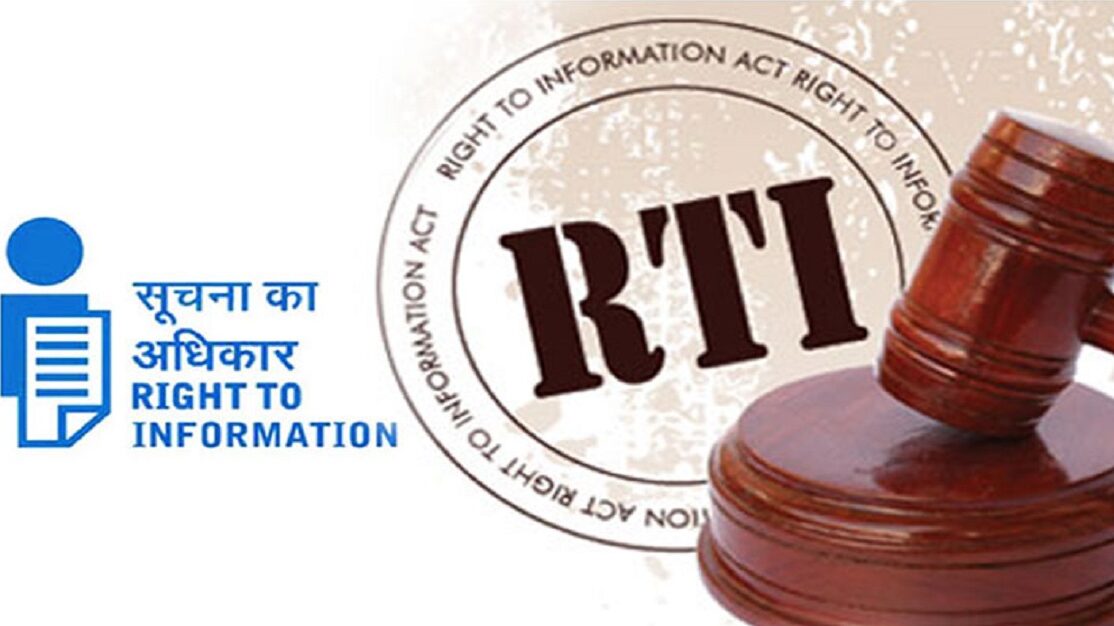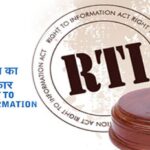
The Right to Information (RTI) Act 2005 is aimed at promoting transparency and accountability in government operations. Enacted on June 15, 2005, and effective from October 12, 2005, it mandates timely response to citizen requests for government information. The Act covers all levels of government, including central, state, and local bodies. Citizens can request information from public authorities, which are required to reply within 30 days. The Act also established the Central and State Information Commissions to oversee its implementation and address grievances. RTI 2005 has empowered citizens to participate more actively in governance and curb corruption.
Most asked question about RTI Act 2005
The Act has been in place for almost two decades now. Information can be accessed by paying as little as ten rupees, sometimes even for free. However, the Act and the empowerment arising from it have not been fully utilized. Do you know why? The reason is, once again, a lack of information. Let’s dive in and break this vicious cycle of lack of information!
Q1. What is Information?
Ans: As per Section 2(f) of the RTI Act, “information” encompasses any material in any format, including records, documents, memos, e-mails, opinions, advices, press releases, circulars, orders, logbooks, contracts, reports, papers, samples, models, data material held in any electronic form, and information regarding any private body that can be accessed by a public authority under any existing law.”
Q2. What is a Public Authority?
Ans: According to Section 2(h) of the RTI Act, “Public Authority” refers to any authority, body, or institution of self-government established or constituted: (a) by or under the Constitution; (b) by any law made by Parliament; (c) by any law made by the State Legislature; (d) by notification or order issued by the appropriate Government.” It includes any body owned, controlled, or substantially financed; or any non-Government organisation substantially financed directly or indirectly by government funds.
Q3. What is Right to Information?
Ans: As defined in Section 2(j) of the RTI Act, “right to information” means the right to access information under this Act, held by or under the control of any public authority. This includes the right to: (i) inspect work, documents, and records; (ii) take notes, extracts, or certified copies of documents or records; (iii) take certified samples of material; (iv) obtain information in electronic formats such as diskettes, floppies, tapes, video cassettes, or printouts where such information is stored in a computer or other device.”
Q4. What is a Public Information Officer?
Ans: According to Section 2(m) of the RTI Act, a public authority can appoint multiple Central Public Information Officers under Section 5(1) and Assistant Public Information Officers under Section 5(2) of the RTI Act to provide information to the public as per the provisions of the RTI Act 2005.
Q5. What is a Third Party under the RTI Act?
Ans: Section 2(n) of the RTI Act 2005 defines “third party” as any person other than the citizen requesting information, including a public authority.
Q6. How can an RTI be filed?
Ans: As per Section 6(1) of the RTI Act, a person desiring information must make a written or electronic request in English, Hindi, or the official language of the area, accompanied by the prescribed fee, to the Central Public Information Officer of the relevant public authority, specifying the particulars of the information sought.
Q7. What is the Fee for Seeking Information from Central Government Public Authorities?
Ans: Under Section 6(1) of the RTI Act 2005, a person seeking information from a Central Government Public Authority must send a demand draft, banker’s cheque, or Indian Postal Order of Rs.10/- payable to the public authority, as the prescribed fee. The fee can also be paid in cash to the Accounts Section of the public authority. The fee and payment mode may vary as per rules made by the appropriate Government and competent authority under Sections 27 and 28 of the RTI Act, 2005.
Q8. What is the Fee for BPL applicants seeking Information?
Ans: According to Section 7(5) of the RTI Act, RTI applicants belonging to the below poverty line (BPL) category are not required to pay any fee. However, they must submit ID proof to support their BPL status.
Q9. Is it necessary to provide a reason for seeking information?
Ans:As per Section 6(2) of the RTI Act, an applicant requesting information is not required to provide any reason for seeking the information or any other personal details beyond those necessary for contacting them.
Q10. Is there assistance available for filing an RTI application?
Ans: If a person is unable to make a written request, they may seek assistance from the Public Information Officer under Section 6(1) of the RTI Act to write their application.
Q11. What is the Time Period for Supplying Information?
Ans: According to Section 7(1) of the RTI Act, information should be supplied to an applicant within 30 days from the receipt of the application by the public authority. If the information concerns the life or liberty of a person, it must be supplied within 48 hours. If the application is sent through the Assistant Public Information Officer or to the wrong public authority, an additional five days are added to the period of thirty days or 48 hours.
Q12. Is there any provision for exemption from Disclosure of Information?
Ans:Sub-section (1) of Section 8 and Section 9 of the RTI Act detail the types of information exempt from disclosure. However, Sub-section (2) of Section 8 allows for the disclosure of exempted information if public interest outweighs the harm to the protected interest.
Q13. Are any organizations exempt from providing information under the RTI Act?
Ans:Yes, certain intelligence and security organizations specified in the Second Schedule are exempt from providing information, except for information pertaining to allegations of corruption and human rights violations.
Q14. Is there a provision for Appeal under the RTI Act?
Ans: According to Section 19 of the RTI Act, if an applicant is not provided information within the prescribed time of thirty days or 48 hours, they may appeal to the first appellate authority, who is an officer senior to the Public Information Officer, within thirty days from the expiry of the prescribed time or from the receipt of the decision. The appellate authority must dispose of the appeal within thirty days, or in exceptional cases, within 45 days.
Q15. Is there a provision for a second appeal under the RTI Act?
Ans: If the first appellate authority fails to pass an order within the prescribed period or if the appellant is dissatisfied with the order, they may file a second appeal with the Central Information Commission within ninety days from the expected decision date or the actual receipt of the decision from the first appellate authority.
Q16. Can complaints be made under this Act? If yes, under what conditions?
Ans: According to Section 18(1) of the RTI Act, complaints can be made if a person is unable to submit a request because the Public Information Officer has not been appointed, refused to accept the application or appeal, denied access to requested information, not responded within the specified time, requested an unreasonable fee, or provided incomplete, misleading, or false information.
Q17. Can penalties be imposed under the RTI Act?
Ans: As per Section 26 of the RTI Act, the Central Information Commission can impose a penalty of Rs.250 per day (up to a maximum of Rs.25,000) if the Central Public Information Officer, without reasonable cause, refuses to accept an application, does not furnish information within the specified time, malafidely denies a request, provides incorrect, incomplete, or misleading information, destroys requested information, or obstructs in any manner the furnishing of information.



Leave a Reply